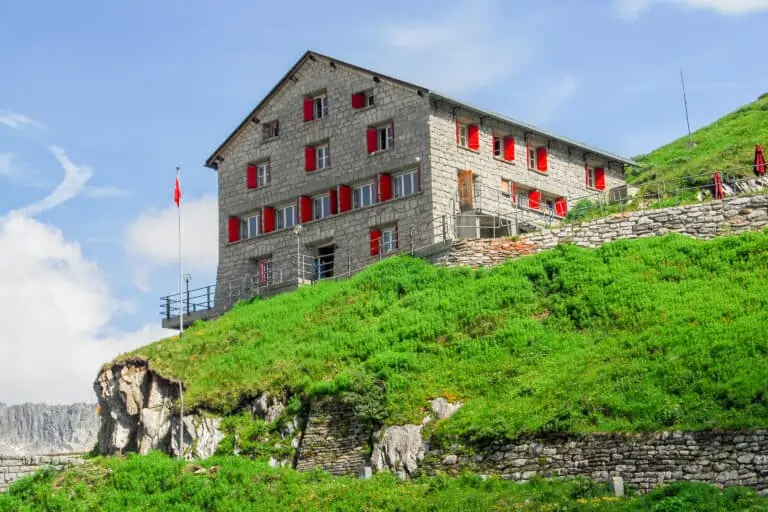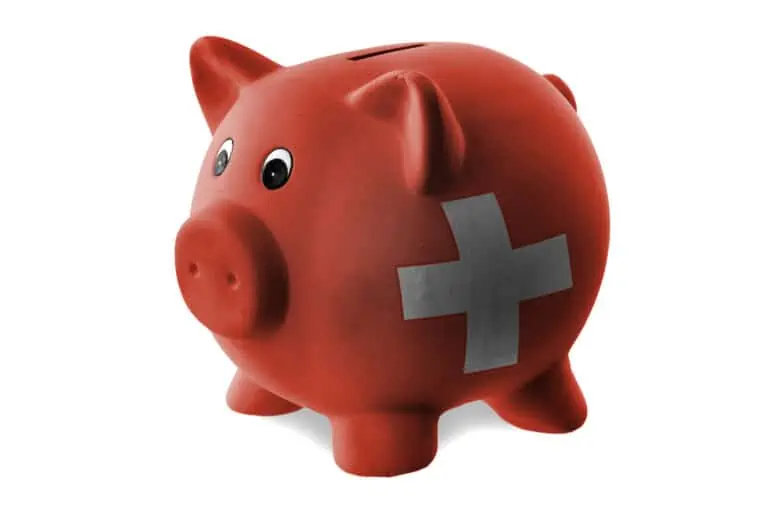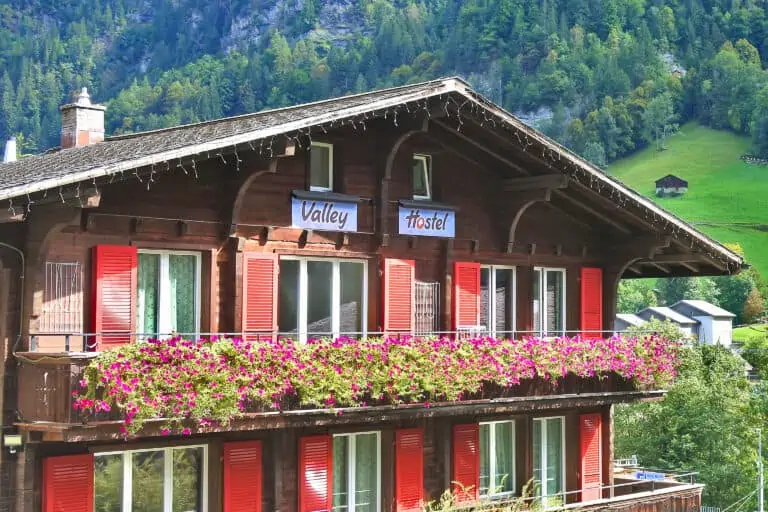Is Switzerland expensive?
Yes, Switzerland has always been pretty expensive to many travelers. But don’t be put off by that! It’s a wonderful country: both in terms of nature, as well as in terms of the service level you’ll encounter throughout the travel and hospitality sectors. So you will get value for your money.
Also, there’s a lot of easy things you can do to save money. I’ll explain how to bring down costs on travel, accommodation, food, shopping, and more.
How much does a vacation in Switzerland cost?
I budget CHF 190 per person per day for a 2-week holiday in Switzerland. Depending on the specifics of your stay, your costs may be much lower or higher.
The total budget of (rounded) CHF 5600 for Arno and me includes the following:
- CHF 918 for 15-day 2nd class Swiss Travel Passes;
- CHF 450 for additional discounted mountain and activity tickets;
- CHF 2700 for the 14-day rental of a comfortable holiday home or apartment;
- CHF 100 for unlimited WiFi access during our travels;
- CHF 1000 for groceries for our own meals, edible souvenirs, and dining out 2 or 3 times (either in a restaurant or cafe, or on board a train or boat while traveling);
- CHF 400 as a small provision for various and unexpected costs.
This budgeted amount does not include the costs for a journey from and to Switzerland, travel insurance, et cetera.
1. Save on traveling and day trips
Plan ahead and budget your travel costs
- Plan your trips in advance to estimate travel costs.
- Think twice before renting a car. There are many additional costs on top of the rental costs. Most tourists travel by train and for good reason: it’s easy, safe, clean, and eco-friendly. With a rail pass, it’s pretty clear what you will be spending, and children often travel for free.
- If you intend to travel by train, boat, bus or cable cars, a rail pass will help you save money. Be sure to calculate which pass is best. A Swiss Half Fare Card nearly always pays off. A Swiss Travel Pass is the best choice if you travel a lot. Look into the Saver Day Pass and Supersaver ticket if you’ll use public transport only a couple of times.
More ways to save on train travel
- Train travel in 2nd class in Switzerland is perfectly fine and cheaper than 1st class.
- If you’re traveling to or from Switzerland by train, book your tickets early for the best rates.
- Booking seats is not required for most trains, so you can save money by not doing so.
Make cheap or free day trips
- Take advantage of the rail pass extras. For example: the Swiss Travel Pass includes free entrance to museums and castles, and it allows free traveling on beautiful scenic routes. Some cable cars and cogwheel trains are also free; many others are discounted.
- Even without a rail pass, traveling is free in some cases. For example: if you book a hotel in Bern, Geneva or Montreux, you’ll get free access to local public transport. If you book an airport hotel, free rides from and to the airport are sometimes included.
- Cheap day trips include hiking or visiting a nearby town.
- Find our extensive overview of free and cheap activities here.
2. Find cheap accommodation
- There are many budget hotels, even on central locations in Switzerland’s most popular towns.
- If you plan to stay in one town for a week or longer, consider renting an apartment. It’s cheaper, and you can cook your own meals. If you are willing to book last-minute, there often are good discounts.
- Try to avoid high season: July, August, and late December to mid-March. Accommodation is often cheaper during the rest of the year.
- Top tourist towns such as Zermatt and St. Moritz are generally expensive. But even there, budget accommodation is available. Alternatively, look for another village in the immediate surroundings. We’ve listed cheaper nearby suggestions on many of our city and town hotel pages.
- Booking a youth hostel or camping can save you even more.
- Mind the tourist tax, which is different per town.
3. Save on food and drinks
- Preparing your own meals in an apartment is less expensive than eating in hotels or restaurants.
- Some Migros and Coop supermarkets have a restaurant that offers affordable lunches and dinners.
- You can easily pack your own lunch. Just buy some bread rolls, cereal bars, or other foods that are easy to take along.
- Drink tap water instead of bottled water. Tap water is safe in Switzerland, unless otherwise indicated.
- Look for cheaper supermarkets, such as Denner and Lidl.
- While shopping, look for cheaper brands and house brands. Migros offers ‘M-budget’, Coop offers ‘Prix Garantie’.
- Our Switzerland shopping guide contains many more tips.
4. Choose souvenirs wisely
- Look for souvenirs in department stores like Loeb or Manor, or even in supermarkets. This is often cheaper than souvenir shops.
- Pick affordable souvenirs like chocolate bars or other Swiss delicacies, rather than army knives and watches.
- If you send postcards: shop around as they’re not the same price everywhere. Buy the cheaper economy-rate stamps.
- Pay in Swiss francs, not in euros or other foreign currencies.
5. Plan your trip based on offers
You would normally first plan your trip. Based on your finalized itinerary, you’d find a rail pass, accommodation, and activities. But if your budget is important, it pays off to first look at offers and promotions, and then plan accordingly.
For example: rail passes are being offered for various durations. Once you know there’s an 8-day pass, you may want to adjust the length of your stay to optimally use the pass.
You can also choose your overnight location(s) based on a good accommodation offer. But do check travel times from the accommodation to the main activities you’re interested in before booking. A cheap hotel or apartment that’s remote and requires lots of travel, may not be the best choice after all.
More on promotions, budget activities, and cheap hotels
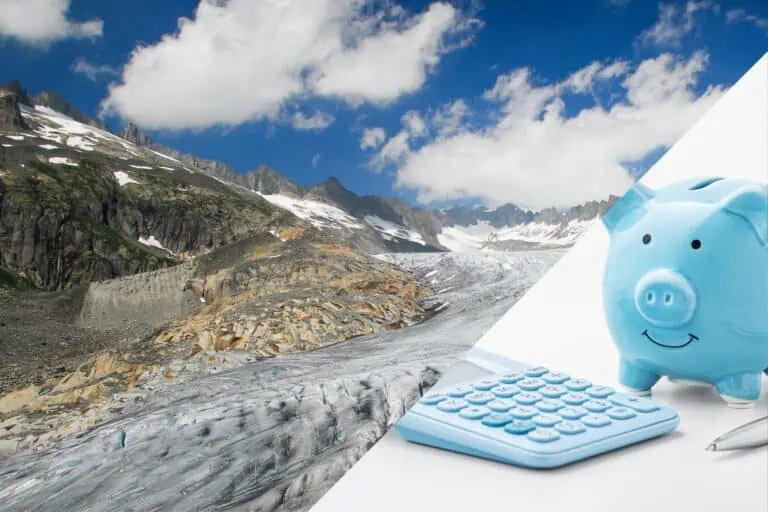
Promotions
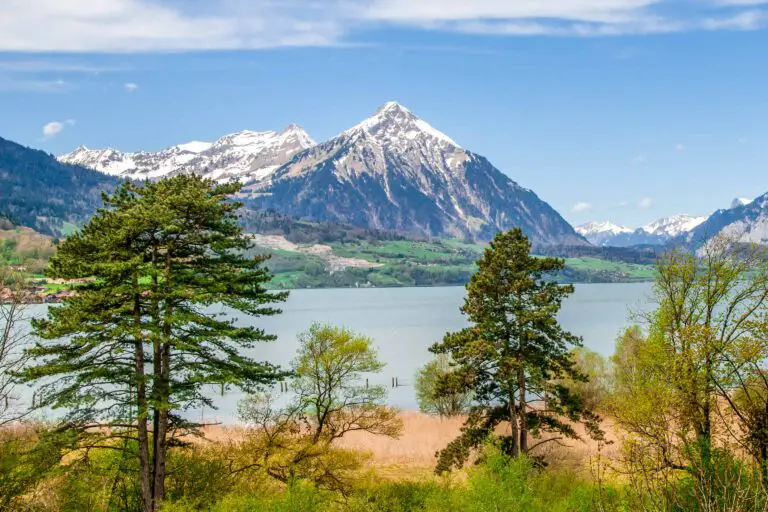
Budget activities
